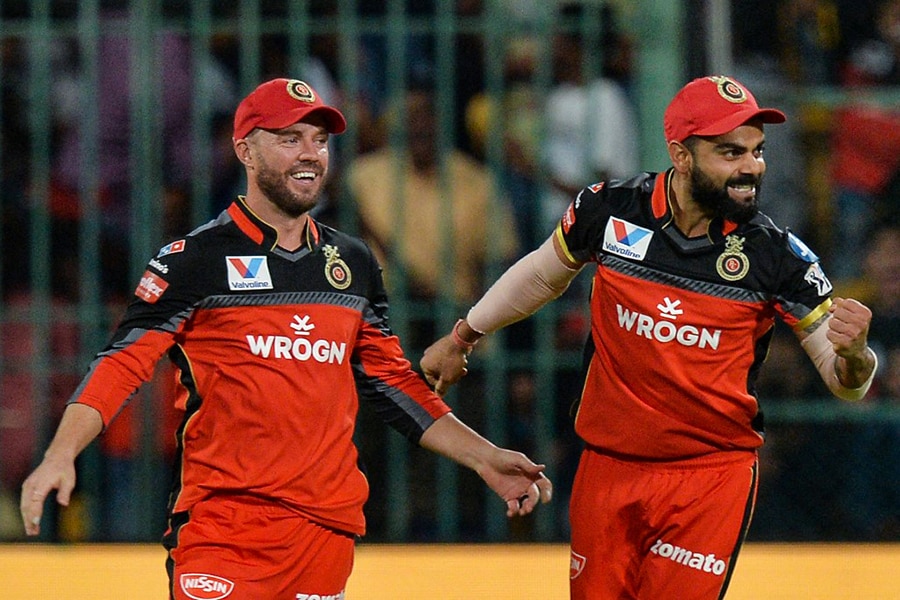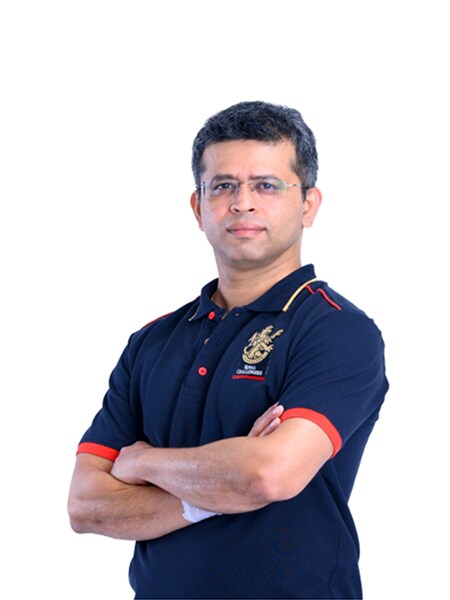
If we reach playoffs consistently, we will win the IPL one day: RCB's Rajesh Menon
As RCB takes on KKR in the IPL play-off, the vice president and the head of the Bengaluru-based franchise, shares how the team turned around from a last-place finish in 2019 to make it to two consecutive playoffs
 Royal Challengers Bangalore captain Virat Kohli (right) and teammate AB de Villiers during an IPL match in 2019. The two high-profile players mentor youngsters and contribute towards building a cohesive team culture for RCB. Photo by Manjunath Kiran/AFP
Royal Challengers Bangalore captain Virat Kohli (right) and teammate AB de Villiers during an IPL match in 2019. The two high-profile players mentor youngsters and contribute towards building a cohesive team culture for RCB. Photo by Manjunath Kiran/AFP
Despite a star cast that comprises international superstars like Virat Kohli and AB de Villiers, Royal Challengers Bangalore (RCB) has not been able to lift the coveted Indian Premier League (IPL) trophy yet. But that hat has not left the team management sleepless; instead the RCB administration has engineered a revamp within that has seen the team finish in the playoffs–the top half of the IPL table–for the last two years, turning around from two bottom-of-the-heap finishes since 2017. Rajesh Menon, RCB’s vice-president and head, breaks down the principles on which RCB 2.0 has been built. Edited excerpts:
How does a cricket franchise like RCB add value to the brand of Diageo?
RCB is a 100 percent subsidiary of Diageo India, it operates independently and we have our own board. The franchise is an integral part of Diageo's business and its performance, and it contributes a significant amount to the operating profit. It makes RCB a critical and one of the strategic assets of Diageo India.




 One of your players, Glenn Maxwell, has completely turned around from mediocre IPLs to a standout performance this season. How has your structure enabled him to become one of the most improved players this IPL?
One of your players, Glenn Maxwell, has completely turned around from mediocre IPLs to a standout performance this season. How has your structure enabled him to become one of the most improved players this IPL?



